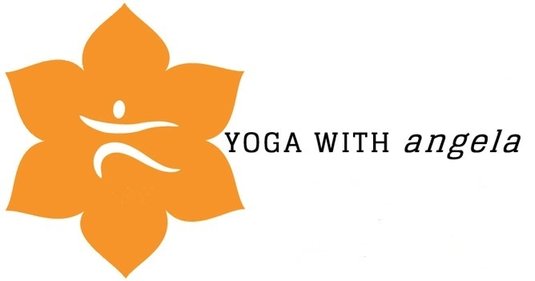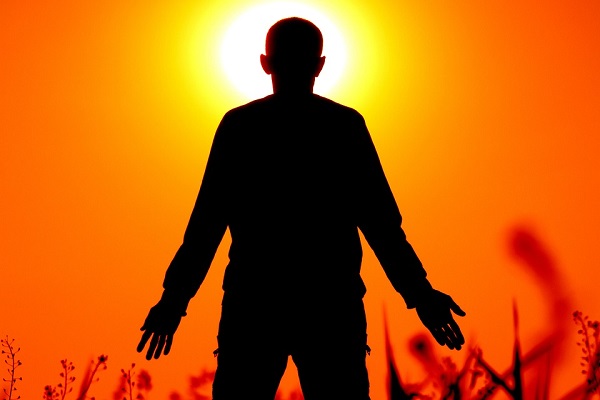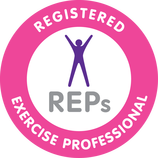I often chat with clients who tell me that they would like to learn to meditate — and that’s great. When I look at them in class, however, they can barely sit still for five minutes!
If you think about it, it’s not all that surprising. Our lives these days are consumed by endless stimulation and activity and we rarely get the time to stop and think about how we feel. Often we don't really want to! If we’re feeling low or anxious, we tend to find further activities or distractions to take our minds off things and make us feel better. And then there’s the added frustration of not being able to fit anything else into our already frenetic lives, which leaves us feeling even more depleted! It’s a vicious circle.
How often do we find the courage to stop and consider how we might change things? Continuing to do the same things but expecting a different result is literally insane, surely? But many of us are guilty of doing just that.
Some people have the wrong idea about meditation and think it’s a way of escaping reality. It’s not. The objective of meditation is to make us see reality as it is.
In order to see reality, we have to first calm the mind. Our mind behaves like a captive monkey which, as it becomes agitated, gets more and more entangled in its bonds. We need to find a way to escape the bonds.
One of the ways to help to distract and calm the mind is simply to observe our breathing. Yogi Donna Farhi tells us that breathing is the most readily accessible resource we have for creating and sustaining our vital energy. Most of us have lost our connection with our breath. Breathing should be the simplest, most natural thing in the world... but thinking about it, if it were that easy, there wouldn't be as many unhappy or unhealthy people in the world.
Most people are unaware of how poorly they breathe and often find themselves breathing high into the chest, taking in breaths too fast and too shallowly. They don’t realise that breathing deeply can lower blood pressure and cholesterol levels. Taking the time to focus on how we breathe is a wonderful distraction and even just observing how someone respires can cause one’s own breath to slow.
For me — and please bear in mind that this is just my own opinion, based on personal experience and having worked to try and help people relax during my years of teaching — the first step is to simply just find a way of distracting the mind. For many people it becomes yet another frustration if they can't instantly sit and quietly breathe, let alone meditate. But meditation, almost by definition, demands patience… which is precisely what many of us don't have. Learning how to meditate properly can take years.
If you think about it, it’s not all that surprising. Our lives these days are consumed by endless stimulation and activity and we rarely get the time to stop and think about how we feel. Often we don't really want to! If we’re feeling low or anxious, we tend to find further activities or distractions to take our minds off things and make us feel better. And then there’s the added frustration of not being able to fit anything else into our already frenetic lives, which leaves us feeling even more depleted! It’s a vicious circle.
How often do we find the courage to stop and consider how we might change things? Continuing to do the same things but expecting a different result is literally insane, surely? But many of us are guilty of doing just that.
Some people have the wrong idea about meditation and think it’s a way of escaping reality. It’s not. The objective of meditation is to make us see reality as it is.
In order to see reality, we have to first calm the mind. Our mind behaves like a captive monkey which, as it becomes agitated, gets more and more entangled in its bonds. We need to find a way to escape the bonds.
One of the ways to help to distract and calm the mind is simply to observe our breathing. Yogi Donna Farhi tells us that breathing is the most readily accessible resource we have for creating and sustaining our vital energy. Most of us have lost our connection with our breath. Breathing should be the simplest, most natural thing in the world... but thinking about it, if it were that easy, there wouldn't be as many unhappy or unhealthy people in the world.
Most people are unaware of how poorly they breathe and often find themselves breathing high into the chest, taking in breaths too fast and too shallowly. They don’t realise that breathing deeply can lower blood pressure and cholesterol levels. Taking the time to focus on how we breathe is a wonderful distraction and even just observing how someone respires can cause one’s own breath to slow.
For me — and please bear in mind that this is just my own opinion, based on personal experience and having worked to try and help people relax during my years of teaching — the first step is to simply just find a way of distracting the mind. For many people it becomes yet another frustration if they can't instantly sit and quietly breathe, let alone meditate. But meditation, almost by definition, demands patience… which is precisely what many of us don't have. Learning how to meditate properly can take years.
Meditation can wait for now. What is more achievable in the short term is the ability to recognise what distracts our monkey minds from everything else and identifying how it feels. That is the feeling that will help us move towards being able to meditate. For me it is summed up by this quote about reading a book:
"I opened a book and in I strode; now nobody can find me."
Ever since I was a small child, reading books has completely consumed me. I switch off from everything else, my mind is completely distracted and I don't have time to worry about anything else. It isn't true meditation, but it is a first step. Your first step may be running or walking in the countryside and listening to the sounds around you, and noticing the colours and variety of trees and flowers,
When you are consumed by whatever activity it is that captivates you, you will notice that your breath is longer and calmer. You feel more relaxed and refreshed. You will have taken the first step towards being able to meditate.
"I opened a book and in I strode; now nobody can find me."
Ever since I was a small child, reading books has completely consumed me. I switch off from everything else, my mind is completely distracted and I don't have time to worry about anything else. It isn't true meditation, but it is a first step. Your first step may be running or walking in the countryside and listening to the sounds around you, and noticing the colours and variety of trees and flowers,
When you are consumed by whatever activity it is that captivates you, you will notice that your breath is longer and calmer. You feel more relaxed and refreshed. You will have taken the first step towards being able to meditate.


 RSS Feed
RSS Feed
